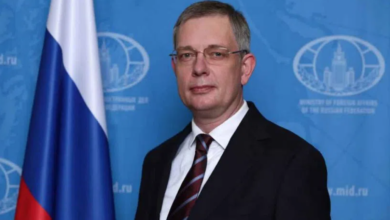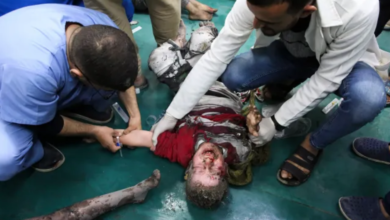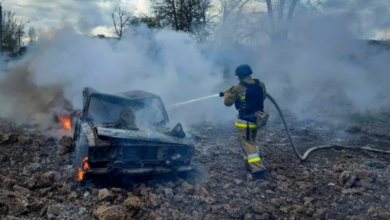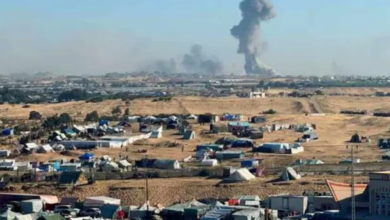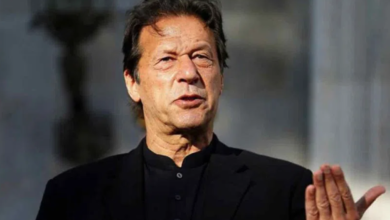UK’s Turkish and Syrian communities rush to aid earthquake victims
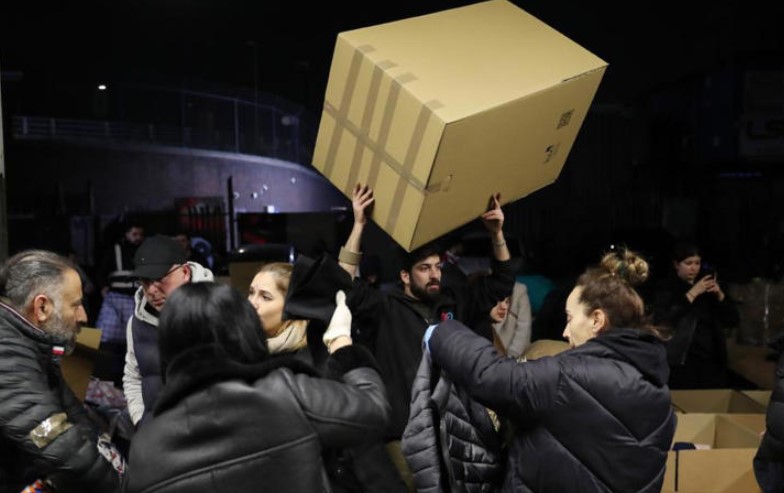
Dozens of volunteers are packing boxes piled high on a north London industrial estate, filling them with vital donations to be sent to Gaziantep, the south-eastern province in Turkey devastated by the earthquake that hit in the early hours on Monday.
Huseyin Goran, 36, has been helping for three days straight. “The first two days I didn’t sleep and did as much as I could. I took a three-hour rest and carried on.”
Goran has lost numerous cousins and relatives. “About 90% of them have lost their homes,” he said.
Some of his relatives are still yet to be found. “It’s always in your head, what are they doing under the rubble, are they alive, are they coping … You lose hope after time.”
The scale of destruction has been immense. “Yesterday my uncle who escaped from the earthquake said there’s nothing left of the whole city. Everything you recall and know is not there anymore,” Goran said.
The 7.8-magnitude earthquake that struck southern Turkey and north-west Syria has left over 21,000 dead and counting. By midday on Friday, an appeal to help the victims had raised £32.9m for the Disasters Emergency Committee’s (DEC) fund, helping 14 British charities respond to the disaster.
Loss and despair has been felt widely across the Turkish-speaking community in the UK, which mostly encompasses Turks and Kurds, among other ethnic groups. “There isn’t anyone who hasn’t been affected,” said Ceren Ermeç, 50, the CEO of ABS Transport, an international shipping company that has facilitated the shipment of vital aid and donations to Gaziantep.
Ermeç jumped into action within hours of the tragic news on Monday, contacting the Turkish consulate and Turkish Airlines to see what she could do. By 3pm, she was told customs rules would be relaxed. “We announced this to our customers appealing for help and donations straight away on social media,” she said.
Five hours later, at about 8pm, there was over a mile of traffic approaching the warehouse filled with people wanting to help and drop off donations. By the end of the night they had received almost two truckloads-worth of donated goods. On Tuesday afternoon, within 24 hours of putting out a call for help, a plane full of vital donations had landed in Turkey.
By Thursday morning, they had six trucks full of items to be sent to Turkey. “I get goosebumps. I am overwhelmed and honoured by the response we have had,” said Ermeç.
Along Green Lanes in Haringey, north London, which is lined with Turkish restaurants, bakeries and jewellers, vans packed with donations pull in and out of the Turkish Cypriot Community Association (TCCA) driveway. In the back room, volunteers sort through the masses of clothes, nappies and medicines dropped off by the local community.
Erim Metto, the CEO of the TCCA and , said he was blown away by the support from the community. “When we came in on Monday morning, we had a couple of bags of donations outside. People were coming with bags without us even requesting donations. By the end of the day, donations filled the room,” he said.
“It’s a kind of horror when you see people who are part of your community who have passed away,” he said, “but it’s an amazing story of humanity coming together. It’s not about race, it’s not about politics, it’s not about religious belief. People are seeing the suffering that is happening and whatever they can do, they do,” he said.
Around the community hub, there is a buzz of chatter. There is a backlog of donations of approximately 150 tonnes, which they estimate will take seven days to clear.
Mehmet Ganidagli is a Metropolitan Police sergeant. He has family who live in a small village in south-east Turkey, near the Syrian border, about 12 miles (20km) from the epicentre of the earthquake. Many of his friends and relatives are still missing.
“I must have made about 200 phone calls to cousins, uncles, and other relatives. Most of them I could get hold of. Some of them I couldn’t. All the ones I could get hold of were either fleeing or sitting in cars.” In the last couple of days it has been more difficult to make contact.
“What’s reassuring is that aid from the government is getting to them,” he said. “I spoke to family members in Turkey from my village and food and clothing reached them today.”
The Syrian community is far less numerous and established in the UK compared with the Turkish-speaking community. A vigil to commemorate the lives lost in both Turkey and Syria was held in central London on Thursday evening.
“It’s disaster upon disaster. Initially it was a political disaster and now it’s a natural disaster,” said Ibrahim, 30, an engineer, who declined to give his full name. “We are here in solidarity with the Syrians and the Turks and everyone else in the region,” he said.
Mouna Kahity, 39, a healthcare professional and researcher said her family, who live in Hatay, the southernmost province of Turkey, which has been severely affected by the earthquake, have had to evacuate their home.
“They survived any war crime you can imagine. They survived chemical attacks, they survived sieges and starvation. In 2018, they were forced to leave their own home in Syria and arrived in Turkey. With this disaster they are reliving that trauma which they are still trying to heal from.”
Kahity’s family have been living in a caravan for the past three days as temperatures dip below zero. “My mum told me they can’t handle the cold. They hadn’t eaten for two days but right now they are safe,” she said.
In Syria, the brunt of the earthquake’s destruction was felt in the north-western region of the country where there is no state control. This has severely hampered efforts to get aid into the affected area.
Mazen Gharibah, 35, director of the British Syrian Consortium, a pro-democracy group, said: “We are asking the UK public to donate to first responders in Syria such as the White Helmets and write to their MPs. The UK government’s response has been shameful so far. We need lifesaving aid immediately, we are running out of time..
For Ermeç, her donations shipments are only the start. “What we’ve done is nowhere near enough,” she said. “Please don’t forget this is happening, this isn’t going to go away. I’m not going to stop until these people are somewhere decent.”

